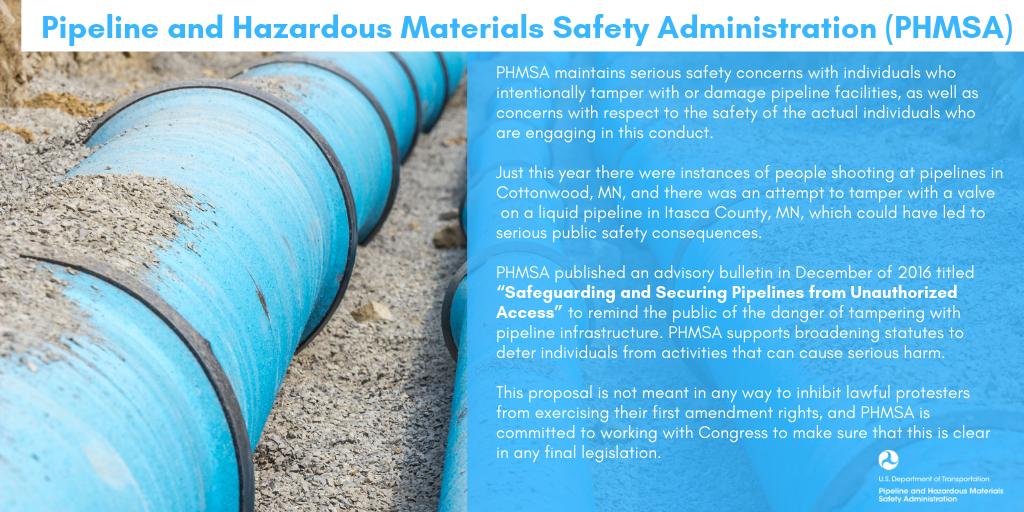Transportation Secretary Elaine Chao is proposing sweeping new safeguards to protect the nation’s network of fuel pipelines — even those under construction — from violent protests and dangerous tampering.
In a major change of pipeline regulations, Chao’s DOT would impose new criminal penalties including a prison term of up to 20 years for the most violent attacks, but keep protections for non-violent protests.
The proposals included in legislation to reauthorize the nation’s pipeline safety program through 2023 are aimed at punishing those who tamper with pipelines, like the April diesel fuel leak near Cottonwood, Minn., or protest violently, like the 2016 fires at the Dakota Access Pipeline near Cannon Ball, North Dakota.
Industry officials have praised the new federal criminal penalties included in the Protecting our Infrastructure of Pipelines and Enhancing Safety Act of 2019.
“Members of the public, surrounding communities, and the environment are put in danger by attacks on pipeline facilities that Congress can deter by updating federal pipeline safety laws,” Association of Oil Pipe Lines President Andrew J. Black told Oil & Gas Journal.

A key administration official told Secrets, “Secretary Chao should be applauded for her forward-thinking leadership on protecting America’s growing and critical energy infrastructure which has often come under attack by fringe interests, especially pipelines while they are under construction.”
The new proposal from DOT’s Pipeline and Hazardous Materials Safety Administration reads:
The pipeline safety agency also posted a graphic explaining its proposal. It said, “PHMSA maintains serious safety concerns with individuals who intentionally tamper with or damage pipeline facilities, as well as concerns with respect to the safety of the actual individuals who are engaging in this conduct.”
It added, “This proposal is not meant in any way to inhibit lawful protesters from exercising their First Amendment rights, and PHMSA is committed to working with Congress to make sure that this is clear in any final legislation.”
